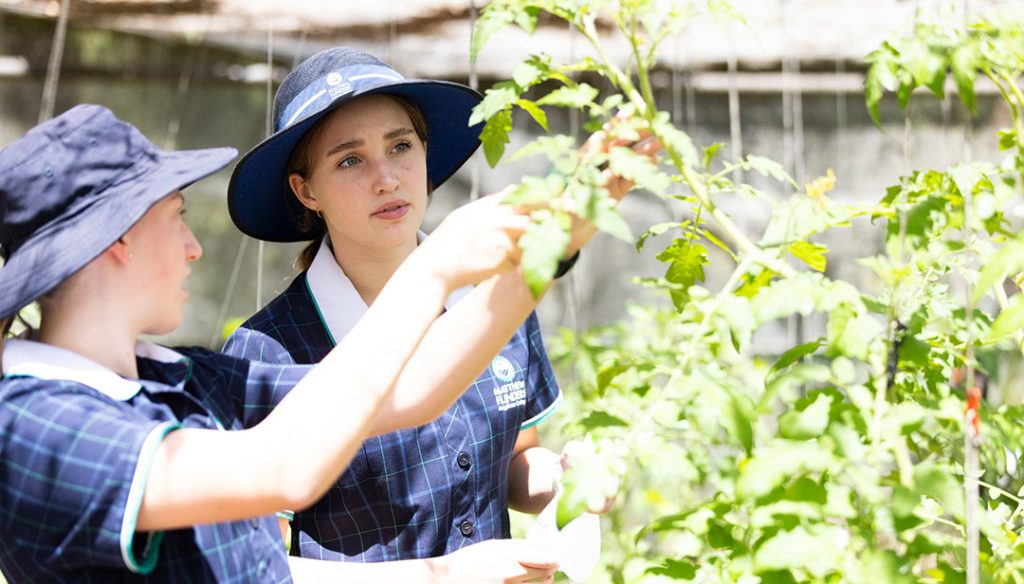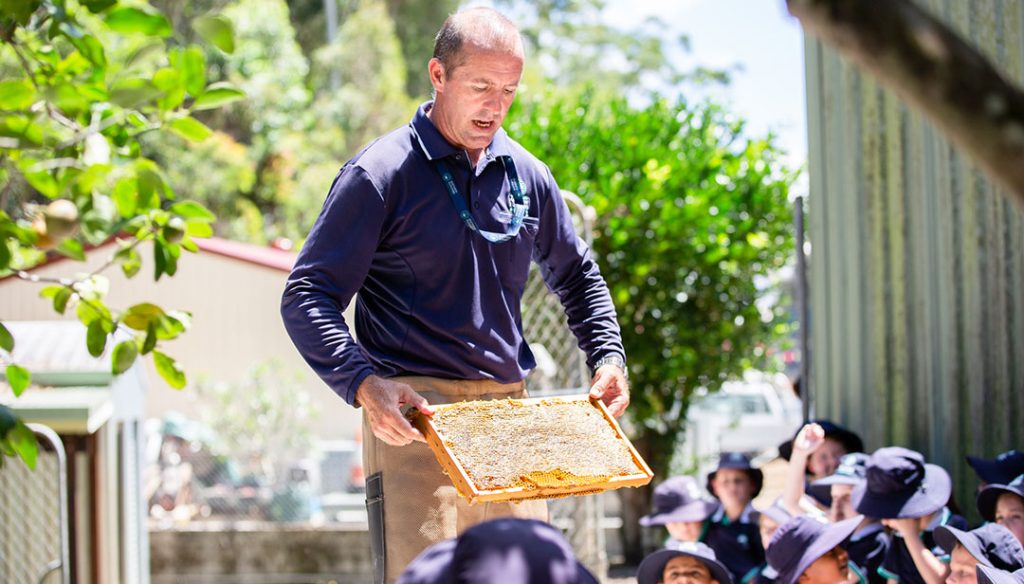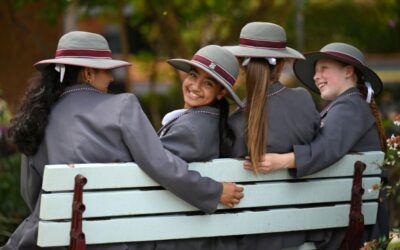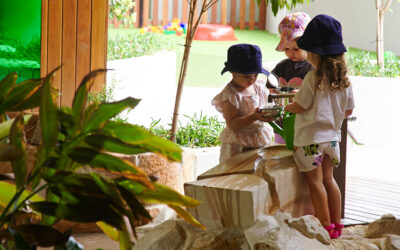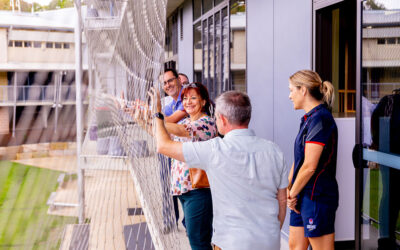Matthew Flinders Anglican College has been awarded The Educator’s 5-Star Sustainable Programs Award 2024 for being “a shining example of effective sustainability education in action”.
Farm at Matthew Flinders Anglican College wins national sustainability award 2024
Flinders is one of just six schools in Queensland and 25 schools across Australia to be awarded a 5-Star Sustainable Program and recognised as “forward-thinking and innovative schools, leading a movement to conserve natural resources and create a greener future”.
The Educator’s 5-Star Sustainable Programs aims to influence more schools and communities to follow the schools playing a critical role in equipping young people to be lifelong stewards of society and the environment.
Principal Michelle Carroll said it was wonderful that the College was recognised for its leadership in sustainability and environmental education programs.
Flinders won the award for its commitment to sustainability across the campus, including the regeneration of its half-hectare Flinders Farm, which includes a 900m2 citrus orchard, 500m2 of vegetable beds, 14 bee hives, chickens, a compost-making facility and a biofertilizer-making facility.
The College’s new podcast, “At the Bell Tower” features a conversation between Ms Carroll and Flinders Farm Manager Jeff MacLennan on the award-winning Farm – listen here.
The Flinders award-winning farm
Under the expert guidance of Farmer Jeff, the Farm has become a vibrant, hands-on environmental education hub for the College’s more than 1,400 students from Prep to Year 12 and the Flinders Early Learning Centre community.
The College is also committed to sustainability as a key part of campus operations and development, such as through the Flinders Masterplan’s suite of new facilities. It also has one of the largest school solar installations across Australia.
Ms Carroll said, “Flinders is delighted to be awarded The Educator’s 5-Star Sustainable Programs Award 2024 and recognised as one of the leaders in embedding sustainability into school culture.
“Our aim is to empower our students to understand their place in the world and build the skills, confidence and capacity to have a positive impact in their communities,” Ms Carroll said.
“Through our Flinders Farm and a range of curriculum and co-curricular programs, our students are learning how to act responsibly and respectfully to nurture and protect the planet for future generations.”
Transformational learning experiences on offer at Flinders
At Flinders, students explore environmental sustainability, recycling, biodiversity, food sovereignty, composting and chemical-free agriculture through a range of innovative hands-on curriculum programs and co-curricular activities.
Along with the Flinders Farm and its fortnightly farmer’s market on campus, there are opportunities to learn and get involved through the College’s design thinking curriculum programs, the environment club, community service learning events such as local beach clean-ups, and cultural exchanges and conferences through the Round Square network.
Farm Manager Jeff MacLennan explains, “At Flinders, we encourage our students to go one step further than sustainability and embrace a mindset of regeneration. The underlying question for students is, ‘What can you do to improve things for those who come after you?’
“Particularly in Agricultural Science, a charter for the Flinders Farm has been developed according to Holistic Thinking principles. In short, each major decision has to meet social, ecological and financial criteria before being implemented.
“Our Year 9 Agricultural Science program is a thrilling opportunity for more than 20 students to be involved in a working farm and explore regenerative agriculture through practical projects and innovative approaches.
“Students thrive in learning how to make compost and compost teas from waste collected on campus, develop biofertilizers using a commercial worm farm, make biochar from green waste and explore the use of animals to enhance soil carbon.
“The wonderful outcome is that our students really take ownership of how the Farm performs, which is key in engaging student interest and empowering future generations.”
Mr Bill Hooper, the Head of Curriculum at Flinders, said the Farm’s growing strength and impact has enabled the College to introduce a new agri-business fusion course in 2025.
“Next year, an additional 20 students in Year 9 will have the opportunity to learn how to grow produce and then take it to ‘market’,” Mr Hooper said.
“Students will explore such steps as branding, identifying target audiences, marketing, goal setting and budgeting.
“We also have all 140 Year 7 students learning on the Farm during their Biology strand of Science.”
Students enjoy learning on the Farm in an old shed that was refurbished in 2021. The farm classroom has roller doors on either side that open to let the students experience the sights and smells of life on the farm.
Sustainability key in College business operations and development
The College is also committed to sustainability as a key part of campus operations and development through the Flinders Masterplan.
Ms Carroll said, “Our new state-of-the-art Infinity Centre, which opened in January 2024, was built with industry-leading sustainability features to make Flinders one of the largest school solar installations across Australia, with more than 1,784 solar panels installed.”
The Infinity Centre’s sustainability features include solar panels providing more than 146kW of power generation capacity, bringing the total capacity across the College campus to 642 kW.
The College’s solar generation per day is the equivalent of powering 95 average family homes per day.
Related Stories
Flinders teacher awarded National Excellence in Teaching Award 2023
Flinders Early Learning Centre “Exceeds Expectations” in all areas
Matthew Flinders Anglican College among Australia’s most innovative schools
